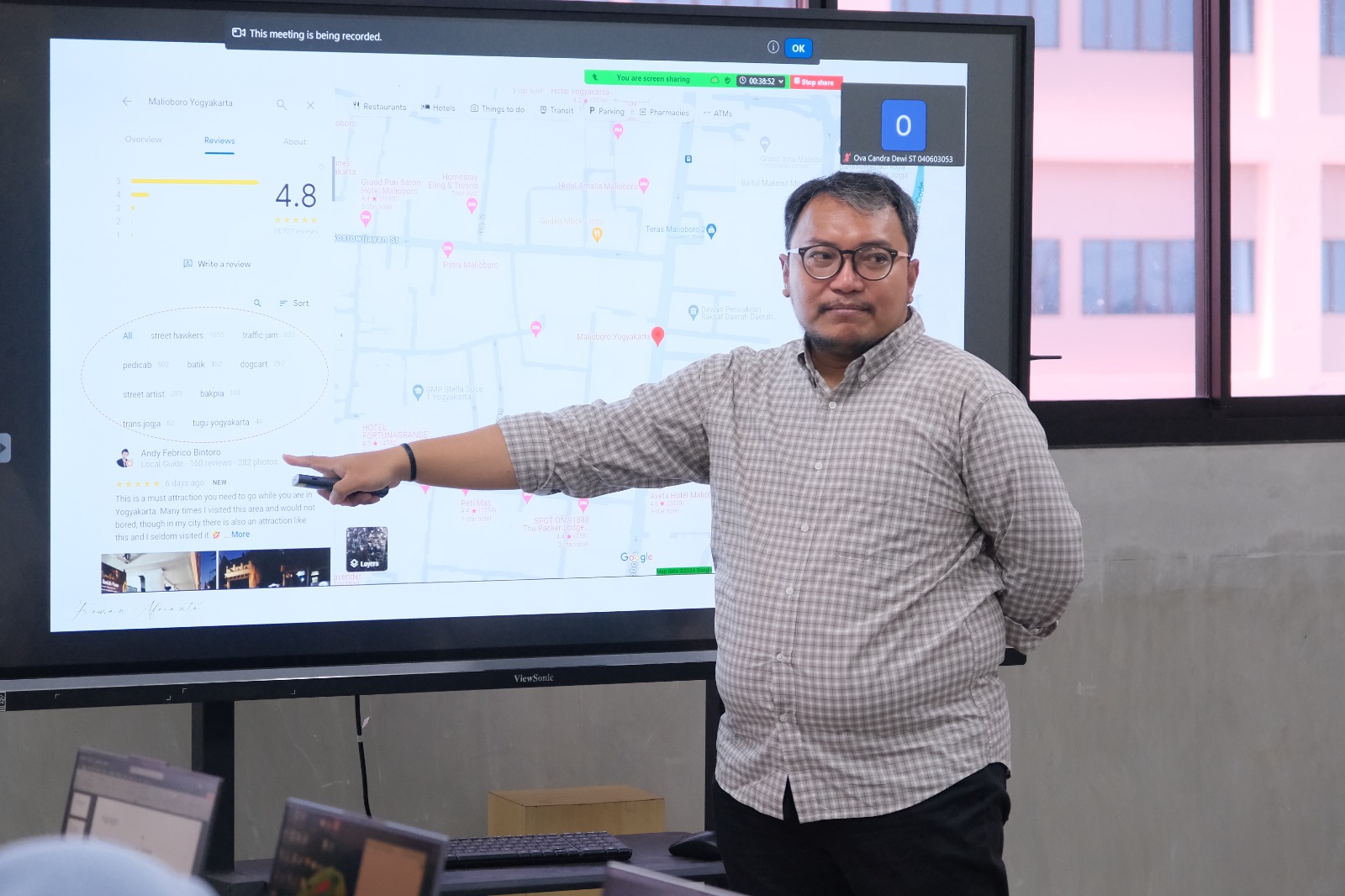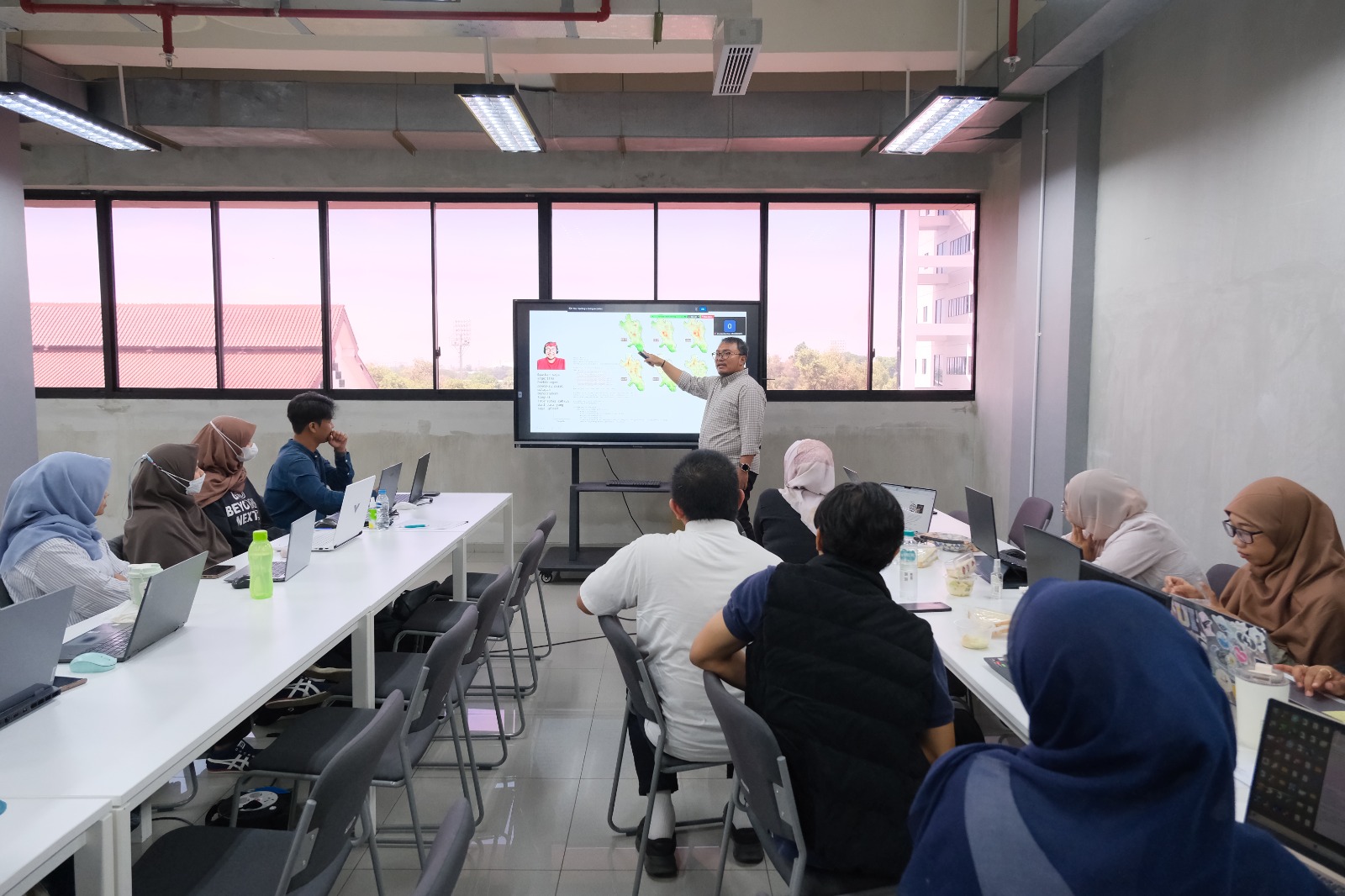Artificial intelligence (AI) and big data have become critical elements in the increasingly complex field of urban planning. With the ability to analyze large and diverse datasets, AI offers city planners opportunities to make faster and more accurate decisions. Models such as DRAM/EMPAL, UrbanSim, and MEPLAN assist in projecting population growth, land use changes, and future infrastructure needs.
The Master’s Program in Interdisciplinary Regional and Urban Planning (PWK) at the Faculty of Engineering, Universitas Indonesia (FTUI), held the fourth episode of the Urban Planning Workshop 2024, titled “Artificial Intelligence (AI) and Planning,” on Thursday, September 26, in room X.604 of the i-CELL building. This event was part of the Urban Planning Workshop 2024 series, which ran from September 5 to 29, 2024.
“AI and big data hold great potential for designing intelligent solutions to the increasingly complex challenges of urbanization. We hope the participants, especially the younger generation of city planners, are better prepared to utilize these technologies to create more sustainable cities,” said Dr.-Ing. Ova Candra Dewi, Head of the Master’s Program in Interdisciplinary Regional and Urban Planning, during her opening remarks.
Dr. (cand.) Firman Afrianto, S.T., M.T., IAP, Acting Chairperson of IAP East Java, was the keynote speaker, leading a discussion on the transformative role of AI in shaping smarter and more sustainable urban planning for the future. The participants, mostly students, were encouraged to grasp how AI can transform cities into more efficient and resilient spaces.
“AI not only functions as a tool but can also take over some aspects of decision-making, allowing for more realistic future simulations and helping plan cities that are more efficient, resilient, and sustainable. However, the human role remains crucial, especially in ensuring the technology is used ethically and fairly,” explained Firman Afrianto during his session. He also addressed challenges related to privacy and algorithmic bias, which became a central point of discussion.
In his presentation, Firman Afrianto emphasized the importance of understanding ethics in AI applications. While AI offers quicker and more accurate solutions, its implementation faces challenges such as potential bias in algorithms that could lead to discrimination, as well as concerns over citizen privacy due to excessive data collection. Thus, AI integration in urban planning must be done carefully, prioritizing transparency, fairness, and accountability.
The workshop also underscored the irreplaceable role of humans in the planning process, even as AI begins to take over some tasks. AI aims to support city planners in creating better, more responsive strategies, not to replace them entirely.
“AI and big data hold enormous potential to build smarter cities capable of addressing global challenges. The Urban Planning Workshop 2024 serves as an important initial step for the new generation of city planners to understand and apply these technologies to create a more sustainable future,” stated Prof. Dr. Ir. Heri Hermansyah, S.T., M.Eng., IPU, Dean of FTUI.
With a deeper understanding of AI, city planners are expected to harness this technology to design cities that are more responsive to changes and more efficient in resource use. This session underscored the vital role AI plays in realizing smart, sustainable cities that are equipped to meet future challenges.
***
Public Communications Office
Faculty of Engineering Universitas Indonesia




